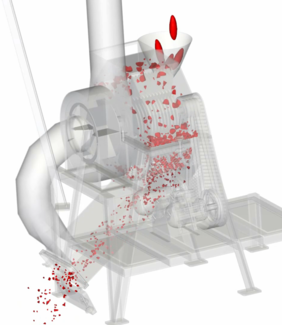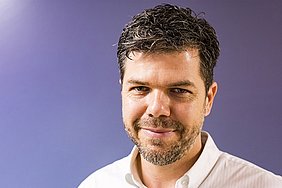Guest speaker Dr Marcelo Precoppe, University of Greenwich, will speak at the Leibniz ATB Colloquium on simulation-based participatory technology development in post-harvest. Lecture language: English
"Simulation-driven participatory technology development"
Referent: Dr Marcelo Precoppe, National Resources Institute, University of Greenwich
Date: June 21, 2022, 11 am
Place: Zoom
Moderation: Dr Sharvari Raut, scientist at LeibnizATB
Abstract
For smallholder farmers and small enterprises in developing countries, technology should have low capital and operating costs, should be easy to repair, and should be simple to operate. But, how can we develop technology with those features? Dr Marcelo Precoppe uses Discrete Element Method and Participatory Technology Development Method to design technologies that do not end up on a shelf but are adopted by farmers and food processors. In this talk, Dr Precoppe shares his experiences in building the capacity of local equipment manufacturers, developing technologies that add value to agricultural products, and reduce food losses and waste.
Dr Marcelo Precoppe is an Agriculture Engineer at the Natural Resources Institute, University of Greenwich, UK. For the last 20 years, he has been working on the development of several postharvest technologies for rural enterprises in low-income countries. Using Participatory Technology Development, Dr Precoppe combines the Engineering Design Process with Participatory Action Research, involving all the stakeholders in the equipment design, including who will operate it and who will manufacture it. To try different ideas, dimension them properly, and determine optimum operation parameters, several designs are simulated using Discrete Element Method, a numerical technique for predicting the behaviour of particles and granular material. This kind of simulation allows visualizing the product flowing through the equipment, making it possible to evaluate virtual prototypes and perform corrections before manufacturing. The use of this method results in lower costs and reduced troubleshooting, both essential when working in with rural enterprises in developing countries.
The colloquium will be held in English.
Participate (via Zoom)


